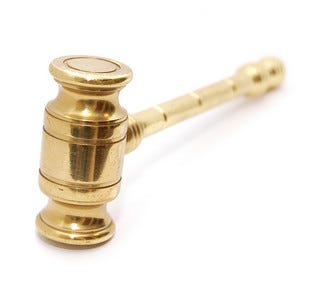The Supreme Court’s recent ruling in Mayo Collaborative Services v. Prometheus Laboratories Inc. could have important repercussions for the life sciences industry. On March 20, 2012, the Supreme Court unanimously ruled to invalidate a pair of patents issued to diagnostics maker Prometheus Laboratories. The patents covered a method for using blood test results to determine the optimal drug dosage to treat autoimmune diseases. The Mayo Clinic had challenged the validity of the patents. In Mayo Collaborative Services v.
April 12, 2012
A recent Supreme Court decision to strike down two patents issued to a medical diagnostics maker could have important repercussions for the life sciences industry.
On March 20, 2012, the Supreme Court unanimously ruled to invalidate a pair of patents covering a method for using blood tests to determine drug dosage that were issued to Prometheus Laboratories. The Mayo Clinic had challenged the patents’ validity. In Mayo Collaborative Services v. Prometheus Laboratories Inc., the Court found that the patents are based on a law of nature and, as such, are not patentable.
|
Many professionals in the biotech, pharma, and medical diagnostics industries fear that the Prometheus ruling could mean that numerous patents in those sectors could be overturned. (Image from Flickr user walknboston.) |
Many in the biotech, pharma, and medical diagnostics fields have taken issue with the ruling because it could mean that numerous patents in those sectors could be overturned.
“The Prometheus decision is a big pronouncement from the Supreme Court on patent eligibility, and the ruling will have a direct impact on diagnostics, genomics, and personalized medicine patents,” explains David Dykeman, a registered patent attorney and shareholder at Greenberg Traurig (Boston).
Less than a week after the ruling, on March 26, the Supreme Court remanded another patent case, Association for Molecular Pathology v. Myriad Genetics, to the Court of Appeals for the Federal Circuit, which previously issued a ruling supporting the patentability of DNA and genes linked to a high risk of breast and ovarian cancer.
More recently, Prometheus was invoked in SmartGene Inc. v. Advanced Biological Laboratories S.A., a case related to two diagnostic test patents. Judge Beryl Howell of the District of Columbia dismissed the claims of two patents from Advanced Biological Laboratories S.A., marking the first time the Prometheus decision has been used to invalidate diagnostic method patents.
The Prometheus ruling follows a 2010 decision by the court to deny the eligibility of a patent covering a method of hedging risk in commodities trading. In 1997, Bernard L. Bilski and Rand Warsaw filed a U.S. patent application that described a series of steps designed to hedge against risk in the energy industry. The United States Patent and Trademark Office (USPTO) dismissed the application, with a patent examiner explaining that it “merely manipulates [an] abstract idea and solves a purely mathematical problem without any limitation to a practical application, therefore, the invention is not directed to the technological arts.”
While laws of nature, physical phenomena, and abstract ideas are, in themselves, not patentable, Bilski argued that the business method for hedging risks is patentable because it represents “an application of a law of nature or mathematical formula.” The case made its way to the Court of Appeals for the Federal Circuit, which ruled against Bilski, explaining that in order to receive patent protection, an invention must be associated with a particular machine or transform an article into a different state. This principle, known as the “machine or transformation” test, also applies to the patentability of products used in medical diagnostics and personalized medicine.
Bilski appealed the case to the Supreme Court, which, in Bilski v. Kappos, issued a splintered opinion denying the eligibility of the Bilski patent in 2010. The Supreme Court also held that the “machine or transformation” test is a “useful and important clue, an investigative tool, for determining whether some claimed inventions are processes.” The Court, however, explained that the test is not the sole criterion for patent eligibility of a process.
In general, federal district courts and the Court of Appeals of the Federal Circuit have chosen not to interpret Bilski broadly and have not make substantial changes to their decisions regarding business method and software patent claims. Although Bilski updated the criteria for patent eligibility, the ruling wasn’t as effective as the Supreme Court likely hoped in shedding light on what constitutes patentability, Dykeman says.
The court’s unanimous ruling in Prometheus puts some of the uncertainty to rest. The opinion did not, however, precisely explain what level of detail is necessary in order to obtain a diagnostic test patent.
“A big question mark still hangs over diagnostic and personalized medicine patents,” Dykeman says. “If the lower courts apply the Prometheus decision broadly, it will likely mean more patents will be found invalid. If the lower courts read it narrowly, we may get better guidelines about the types of diagnostic patents that are patentable.”
Brian Buntz is the editor-at-large at UBM Canon's medical group. Follow him on Twitter at @brian_buntz.
You May Also Like



